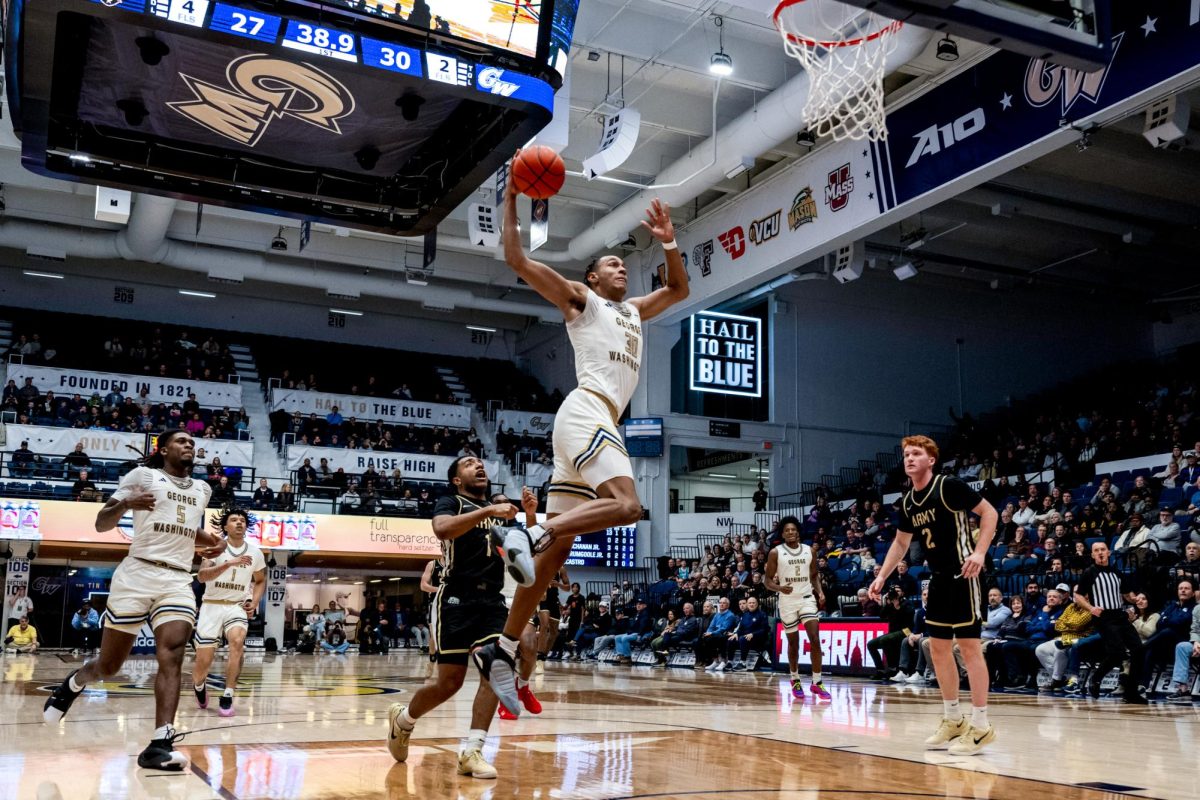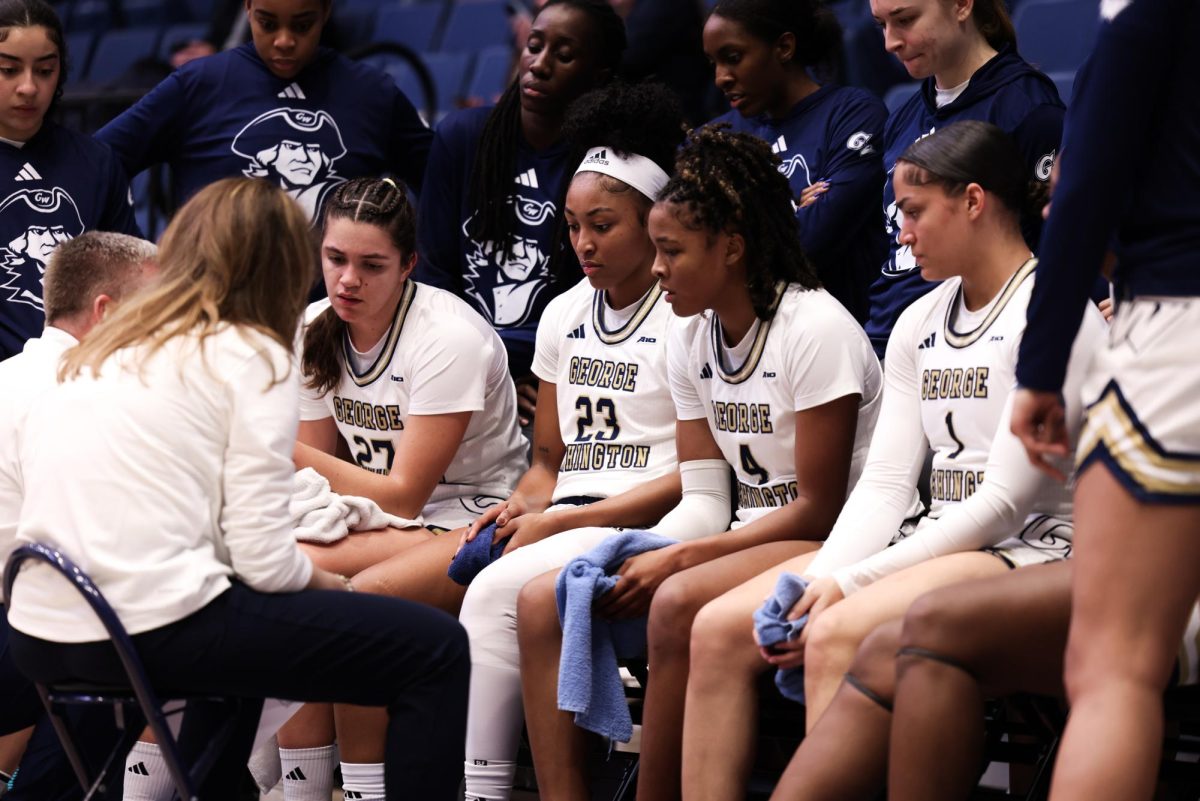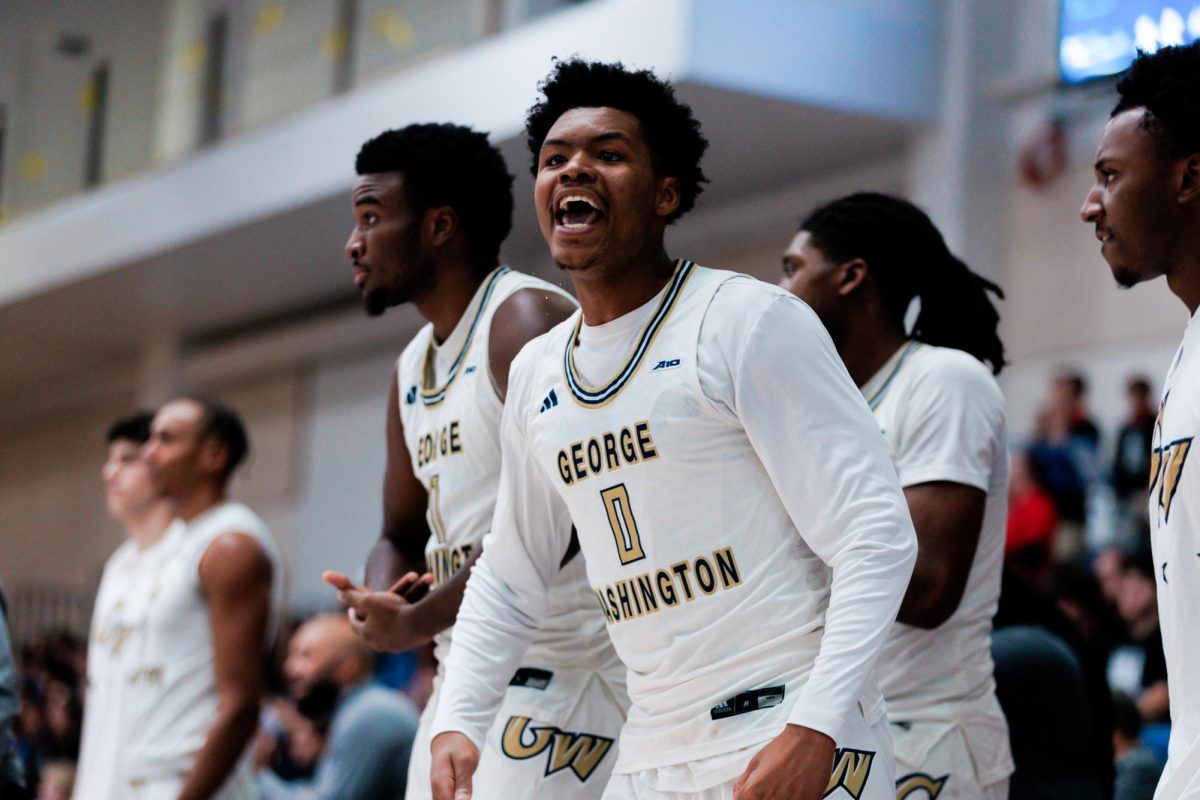
Updated: Sept. 17, 2014 at 10:09 p.m.
During her time as the Atlantic 10’s fifth full-time commissioner, Bernadette McGlade has been no stranger to change – as schools like Butler, Xavier and Charlotte have left the conference, schools such as VCU, George Mason and Davidson have become members and the basketball-centric conference has looked to become a national powerhouse.
In the wake of more changes in college sports, the sixth-year commissioner talked to The Hatchet about her work, the future of the NCAA and her relationship with GW Athletic director Patrick Nero. The interview has been edited for length.
As commissioner, what is your relationship with the NCAA like?
Bernadette McGlade: I serve actually on the NCAA Leadership Council. We’ve been very involved at least in trying to establish a voice and an ability to really be able to contribute meaningfully to everything in all this new NCAA restructuring over the last two years.
How do you think that restructuring will impact the A-10, and college sports in general?
BM: From the A-10 standpoint, I think it’s going to give us equally a higher share of autonomous decision making. We’re going to have to maybe stop looking over our shoulder and basically look around our own membership and make decisions … That could help keep us in the national spotlight that we’ve been accustomed to over the last three to four years.
The way it started out, 18 months ago, was that [to adopt the power five’s legislation] … the other 27 conferences, we would have to all come together and we would have to engage in this full group voting process where, as you know, you’ve got to meet a majority threshold before everyone else can do it. And we were able to get that taken away [so that the A-10 doesn’t] have to see what the Patriot League or the Sun Belt or the Colonial does. We can do what we think is best for the A-10.
With all the success the A-10 has had, do you feel that there should be a permanent place for the conference on the Division I Board of Directors?
BM: I think that’s probably an unanswered question right now. I think it’s really good that the A-10 is due to rotate into holding a seat on the Board of Directors, which is where big, overarching, philosophical decisions will be made. So we’re in the next rotation of conferences that will be basically taking office.
The irony of the restructuring in the NCAA is that … the presidents on the Board of Directors have essentially allowed a complete change in allowing the governance structure to be built based on the needs of BCS football programs, and yet 95 percent of all the operations, revenue and championships in the NCAA, the revenues are driven solely by the media contract for the men’s basketball championship.
If [new] regulations specifically relate to the revenues and the opportunities specifically in the sport of football, then I think the next decision is going to be, OK, is there some transfer of that football revenue over to the NCAA budgeting side to be able to offset those costs? Because if that doesn’t happen, then in essence the changes are going to be funded, quite frankly, through the basketball championship, which really affects all the other conferences in the country far greater than the five equity level.
Do you think the amateur model for college sports can last?
BM: I think we’re going to see a different model as it relates to student athletes being able to take advantage of, I’ll call it commercial opportunities, that in the past they haven’t been able to take advantage of.
It’s been bantered about that if there are a lot of rule changes that start to really increase budgets and finances required to run your athletic program, then you may have programs that will look to save money elsewhere and maybe drop sports. I hope that that’s not an unintended consequence of this restructuring.
How have you and Patrick Nero worked together, especially in his capacity as chair of the Council of Athletic Directors?
BM: We have a great working relationship, and I think part of it was forged by, prior to Patrick becoming the AD at GW, he was a commissioner, so he was a colleague and I knew Patrick. But since he has been at GW, he is just one of our most valuable athletic directors. He’s extremely well-respected not even in the A-10 but nationally.






